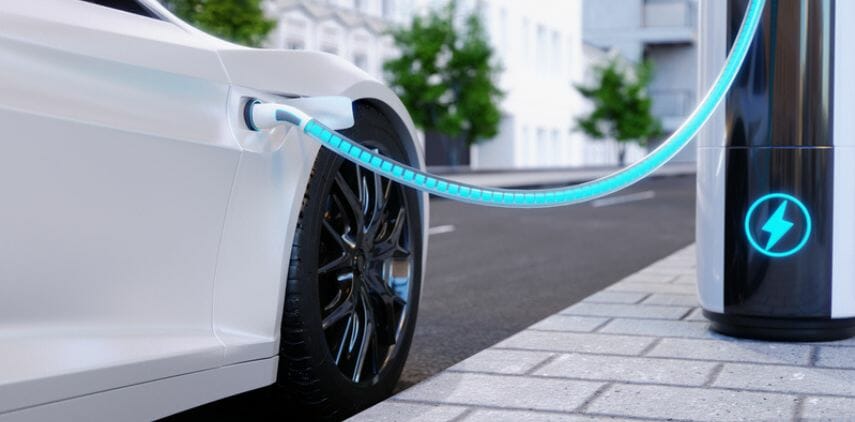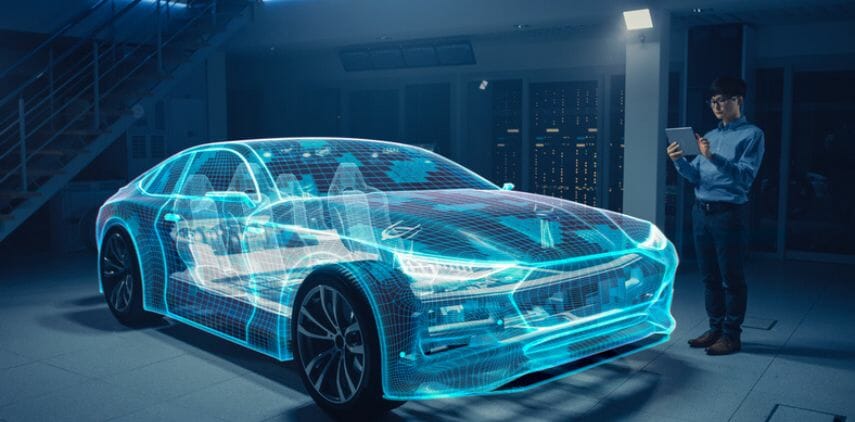Overview
Electric vehicles (EVs) have gained significant popularity recently, offering a greener and more sustainable alternative to traditional gasoline-powered cars. With advancements in technology, the range and capabilities of EVs have improved considerably.
Luxury SUVs, in particular, have embraced the electric revolution, combining opulence and eco-friendliness in a single package.
This article will explore the best electric luxury SUVs currently available, their features, driving ranges, battery life, and other factors to consider when choosing the perfect EV.
Table of Contents
Will Electric Cars Ever Get 500-Mile Range?
As technology progresses, the driving range of electric cars is continuously expanding. While mass-market EVs have yet to achieve 500 miles on a single charge, manufacturers are working towards this goal.
Several factors contribute to the range of an electric vehicle, including battery capacity, aerodynamics, energy efficiency, and weight. With ongoing advancements in battery technology and improved efficiency, we may see future EVs with a 500-mile range.
Do Any Electric Cars Have a 400-Mile Range?
A few electric cars on the market offer an impressive 400-mile range. Manufacturers such as Tesla, Lucid Motors, and Ford have introduced models with long-range capabilities.

Some examples are the Tesla Model S Plaid, Lucid Air Dream Edition, and Ford Mustang Mach-E GT Performance Edition. These vehicles utilize high-capacity batteries and advanced power management systems to achieve extended ranges, allowing drivers to travel without frequent recharging.
Factors to Consider When Choosing an Electric Luxury SUV
When selecting an electric luxury SUV, several factors should be considered. Let’s delve into the key aspects to evaluate before making a purchase.
- Price: Luxury SUVs typically have a higher price tag than their non-luxury counterparts. Electric luxury SUVs, in particular, tend to be more expensive due to advanced technology and premium features. It is important to set a budget and consider the overall value and features offered by the vehicle.
- Incentives and Tax Benefits: Many governments and local authorities offer incentives and tax benefits for electric vehicle purchases. These incentives can significantly reduce the upfront cost of the vehicle, making it more affordable. Research the incentives available in your area to determine the potential savings.
- Software Updates: Electric vehicles often receive over-the-air software updates, which can enhance performance, introduce new features, and improve the driving experience. Manufacturers like Tesla are known for their frequent software updates, which provide continuous improvements and keep the vehicle up to date with the latest technology.
- Specifications: Look into the specifications of the electric luxury SUV, including motor power, acceleration, top speed, and towing capacity. These factors vary among models and impact your driving experience and the vehicle’s utility.
- Driving Range: The driving range of an electric luxury SUV is a crucial consideration. Evaluate your typical driving patterns and ensure the vehicle’s range meets your needs. Additionally, consider the availability of charging infrastructure in your area to ensure convenient long-distance travel.
- Battery Life: The lifespan of the vehicle’s battery is essential. High-quality electric luxury SUVs typically come with warranties that cover the battery for years or miles. Researching the battery’s longevity and any warranty information is advisable to make an informed decision.
- Charging Infrastructure: Before purchasing an electric luxury SUV, assess the availability and accessibility of charging stations in your vicinity. Consider the charging network coverage and the convenience of accessing fast-charging stations for long trips.
- Charging Options: Electric luxury SUVs offer various charging options, including home charging, public charging stations, and fast-charging networks. Understanding the charging options and the time required for a full charge is crucial for planning your charging routine.
How Long Do EV Batteries Last?
The lifespan of EV batteries varies depending on several factors, including battery chemistry, usage patterns, and charging habits. Generally, electric vehicle batteries can last anywhere from 8 to 15 years or more.
Battery degradation over time is inevitable but occurs at a gradual pace. Most manufacturers provide warranties on the battery, ensuring its performance for a specified number of years or miles.
What Factors Affect the Lifespan of EV Batteries?
Several factors can impact the lifespan of electric vehicle (EV) batteries. Understanding these factors can help EV owners maximize the longevity and performance of their battery packs. Here are the key factors that influence the lifespan of EV batteries:
- Battery Chemistry: The type of battery chemistry used in the EV significantly affects its lifespan. Lithium-ion batteries, the most common type used in EVs, are known for longevity. However, in lithium-ion batteries, different chemistries can have varying lifespans. Manufacturers often optimize battery chemistry for durability and longevity, but advancements in battery technology continue to improve lifespan.
- Temperature: Temperature substantially impacts battery performance and lifespan. Extreme hot and cold temperatures can degrade the battery over time. High temperatures accelerate chemical reactions inside the battery, leading to faster degradation. On the other hand, extremely cold temperatures can reduce the battery’s capacity and make it less efficient. It is crucial to park EVs in shaded areas or garages and avoid exposing them to temperature extremes whenever possible.
- Depth of Discharge (DoD): The depth of discharge refers to how much energy is drained from the battery before recharging it. Shallow discharges, where the battery is not fully depleted before recharging, are less stressful on the battery and can help prolong its lifespan. Conversely, frequent deep discharges can accelerate battery degradation. It is advisable to avoid consistently depleting the battery to extremely low levels and instead aims for partial charge cycles.
- Charging Habits: Charging habits can significantly impact battery lifespan. Fast charging, while convenient for quick top-ups, can generate heat and put additional stress on the battery, potentially leading to faster degradation over time. Regularly using slower, level 2 charging methods are generally gentler on the battery. Additionally, avoiding frequent high-speed charging sessions and charging to 100% capacity unless necessary can help preserve the battery’s longevity.
- Usage Patterns: How an EV is used and driven affects the battery’s lifespan. Aggressive driving styles, such as rapid acceleration and heavy braking, can increase the load on the battery and reduce its lifespan. Driving at moderate speeds and practicing smooth acceleration and deceleration can help optimize battery performance and extend life. Furthermore, carrying excessive cargo weight or towing heavy loads can put additional strain on the battery.
- Maintenance and Care: Proper maintenance and care are essential for maximizing the lifespan of EV batteries. Regularly scheduled maintenance, as the vehicle manufacturer recommends, ensures that the battery system and cooling mechanisms function optimally. Keeping the battery and cooling system clean and debris-free is also important, as efficient heat dissipation helps preserve the battery’s health.
- State of Charge (SoC): Maintaining the battery at extreme states of charge—either fully charged or fully depleted—for extended periods can be detrimental to its lifespan. Keeping the battery charged within the manufacturer’s recommended range, typically between 20% and 80%, is advisable. Storing the EV with a partial charge during long periods of inactivity can also help prevent unnecessary stress on the battery.
It is important to consult the vehicle’s manual and follow the manufacturer’s battery maintenance and charging guidelines to ensure the best possible performance and longevity.
Which Fully Electric Cars Have the Longest Range?

Several fully electric cars offer impressive driving ranges, providing ample flexibility for long-distance travel. The Tesla Model S Plaid, with its tri-motor setup and advanced battery technology, boasts a range of over 390 miles.
The Lucid Air Dream Edition, equipped with a large battery pack and efficient power management, offers a range of up to 520 miles, setting a new benchmark for electric vehicles. Other notable long-range models include the Ford Mustang Mach-E GT Performance Edition, Audi e-tron GT, and Porsche Taycan.
How Long Do Electric Cars Last?
When properly maintained, electric cars can last as long as traditional internal combustion engine vehicles. The absence of complex mechanical components, such as engine cylinders and transmissions, can contribute to their longevity.
Additionally, electric cars benefit from regenerative braking, which reduces wear on brake pads and extends the lifespan of the braking system. With routine maintenance, electric cars can serve their owners reliably for many years, providing a sustainable transportation option.
What Will Be the Best Electric Car in 2023?
Predicting the best electric car in 2023 is challenging, as the automotive industry is evolving rapidly. However, based on current trends and upcoming releases, several electric vehicles show promising potential. With its advanced technology and performance upgrades, the next-generation Tesla Model S is likely to be a strong contender.
Other noteworthy models anticipated in 2023 include the BMW i4, Audi Q4 e-tron, and Mercedes-Benz EQE. As advancements in battery technology and infrastructure continue, the options for the best electric car in 2023 are set to be exciting and diverse.
Is There an Electric Supercar?
Yes, the world of electric vehicles has not left supercars untouched. Electric supercars combine blistering acceleration, futuristic designs, and zero-emission performance. Manufacturers like Rimac, with their C_Two model, have created electric hypercars capable of mind-boggling speeds and astonishing electric range.

Other notable electric supercars include the Pininfarina Battista, Lotus Evija, and Tesla Roadster, which aim to redefine performance and sustainability in the high-performance automotive segment.
Conclusion
Electric luxury SUVs offer a compelling combination of luxury, sustainability, and cutting-edge technology. As EV technology advances, driving ranges increase, and charging infrastructure improve, electric vehicles continue to gain prominence in the automotive market.
When selecting an electric luxury SUV, consider price, incentives, software updates, specifications, driving range, battery life, charging infrastructure, and charging options.
With diligent research and consideration, you can find the perfect electric luxury SUV that meets your needs and reflects your commitment to a greener future. Embrace the electrifying driving experience and contribute to a sustainable tomorrow.






